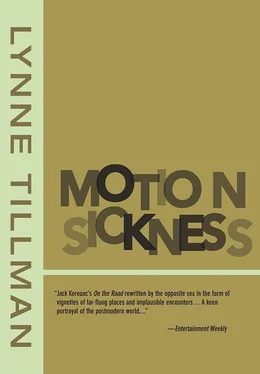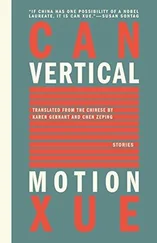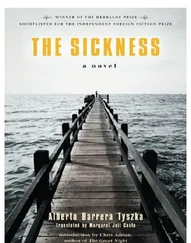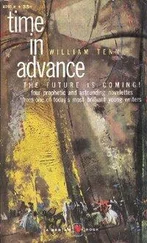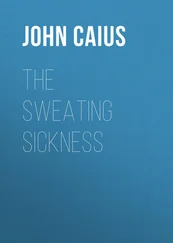Lynne Tillman
Motion Sickness
In memory of
Nathan Tillman
and for
Sophie Merrill Tillman
and
Barbara Merrill Tillman
Chapter 1. Tourist Attractions
“I am…the fellow citizen of all that inhabits the great furnished hotel of the universe.”
— Flaubert
PARIS
I am in my hotel room, on the bed, reading The Portrait of a Lady , and nursing an illness I might not have. As I am unhappy, I might just be unhappy and not suffering from the flu or la turista, but a Frenchwoman named Arlette has sent me a get-well card. She seems to take my illness seriously. The card has a Tibetan symbol on it whose meaning I don’t know and which might have significance if I did. Her concern might also be ironic and when she appears at my bedside the next day, I can’t read the gesture as graciousness or solicitude only, since I don’t really know what she means. I both feign surprise at her visit and feel surprised, a mixed response for what might be a mixed get-well visit. She talks about adjusting to changes of all sorts — the weather, leaving one city for another, a friend’s betrayal, the end of a love affair — some of which she knows I’ve experienced. Leaving a city, a lover, good weather for bad. I want to get back to my book, the heroine of which, Isabel Archer, has an end that must be worse than mine, something I’ve always loved novels for. I decide to leave Paris when I’ve finished it. There are Turkish baths, hamams , in Paris, which reminds me of Istanbul, but I try none of them as I don’t feel well enough to leave my hotel room. Except to go down the street for some bread. Or pain , as they call it here.
* * *
ISTANBUL
My hotel room is small and dark and it’s been raining for weeks, and even the walls look wet, though when I touch them, as if reading Braille, they are in actuality dry. It’s a good room to read in and the hotel itself stands about five hundred yards from the Blue Mosque, which I have not yet gone inside. I’m told you have to take off your shoes and will have a hard time finding them later. My shoes are wet, and they’re my only pair, since I threw out another as dead weight, determined to travel light. I travel dark and wet, I think to myself, because I’m reading Mickey Spillane’s My Gun Is Quick . Reading it makes me want to make movies, but I’m not sure why. The hotel manager, perhaps its owner, a slight, elegant man with a moustache, knocks on my door and brings me a tray with a teapot and a glass. I haven’t asked him for this, and he is either curious about what I’m doing in my room, or a very nice man whose sense of hospitality extends beyond the mercenary unctuousness of other hotel managers I’ve met. Sipping the tea in a glass shaped like Dolly Parton or Mae West, associations the hotel man here probably wouldn’t make, suddenly I’m dying to go to the movies. Almost anything makes me want to go to the movies.
* * *
AGIA GALINI
I never meant to go to Crete, but now that I’m here, I’m glad. My room faces the harbor and I have a small terrace. Because the sun is hot — we may be near the equator — l stay under the shade of the terrace’s overhang. Above me are two Australians, Tina and Graham, who live in London, and they’re out most of the day, and John, a man from New Zealand, who calls himself a traveler and a visitor. He smokes endlessly and I know he’s there because of the smell, and like my father’s occasional cigars, I find the smell, at a distance, reassuring. They say that smell for women is a much stronger sense than for men, and I’d like to know why it should be, and that as you grow older, everyone’s sense of smell increases. Why this should be I don’t know.
The New Zealander yells down that we should have a drink. He has a bottle, he says. Of what, I wonder, but don’t ask. I say, I’m reading but all right. I don’t know why I put it that way—“reading but all right.” Perhaps I meant to suggest that his visit ought to be short. But I’m in Crete with all the time in the world, as well as an increasing sense of smell, for that matter. John and I empty the bottle, sitting on the terrace, the hotel room and its bed in the background. A small room with a single bed. The night grows darker and darker, until I can only hear the water slapping against the harbor, but can’t see it. Just as I can barely see John, but can smell him.
* * *
ISTANBUL
An Englishman has taken the room next door. I hear him speaking to the hotel manager in that unmistakable accent that brings up so many associations, even ones that aren’t movies. He, like me, stays in his room most of the time. At least I don’t hear him leaving. His door rarely opens or shuts. Perhaps, like me, he has bought oranges, bread and yogurt. Or not. We pass each other going to the toilet but as he doesn’t acknowledge me, or act friendly, I decide I won’t either. If he knows I’m American, he probably expects me to make the first move. I feel under no such cultural imperative. Although as the days pass, this resolve appears foolish. On the other hand he might think I’m Irish, German or Italian, as others have, and hold different expectations.
I read The New York Times or Herald Tribune nearly every day, which marls me as a foreigner, one who desires contact with her home, indicating attachment. Sometimes I buy a local paper, simply to appear to be trying. I look at the pictures and puzzle over the captions. The hotel manager, Mr. Yapar, approves of the oranges. He smiles broadly when I come in with my groceries and newspaper, nodding his head up and down with enthusiasm, I think. And if he is with another man when I pass by, he also nods at his friend. This might not, of course, be approval, but day after day, the hotel man and I smile and nod and gesture and I believe he’s getting used to me, as I am to him. I suppose we have a sense of each other and are like babies together, communicating preverbally.
I decide he does like me, as I have a need anyway to feel I am liked. No doubt this marks me as an American. I must be full of national characteristics that are hidden from me and are palpable to others, to Mr. Yapar, for instance, as home becomes palpable to me only because I’m not there. Still I don’t really want to meet or talk to anyone, and revel not only in this silent relationship but also in my quiet hotel room whose walls look damp. The Englishman, when we passed, touched his hand to his head, a kind of salute, and I did likewise, a gesture that has absolutely no meaning to me at all.
* * *
AMSTERDAM
The hotel I am staying in has a history — as I guess does everything — a living history. Three generations of a single Dutch family sitting or standing in the room I am eating in, who have owned this hotel for as many generations or more. The grandfather, the father, and the son, all owners of this small, cozy, or gezellig , as the Dutch might put it, establishment. I’m eating a raisin bun, drinking coffee and reading I Should Have Stayed Home , a Horace McCoy novel about Hollywood. I’m also wishing there was a television in my room, and glance furtively at the three generations as if they might become a sitcom. Actually, looking more carefully, they’re closer to Western types, on the order of Rawhide or Bonanza or Seven Brides for Seven Brothers , and from now on whenever I see them, either the theme song from Bonanza , or “I’m a Lonesome Polecat” from Seven Brides plays in my mind.
I finish I Should Have Stayed Home in the breakfast room, and I believe it is also in this room — cheerful and warm that I read that vampires do not suck blood, they lap it.
Читать дальше
